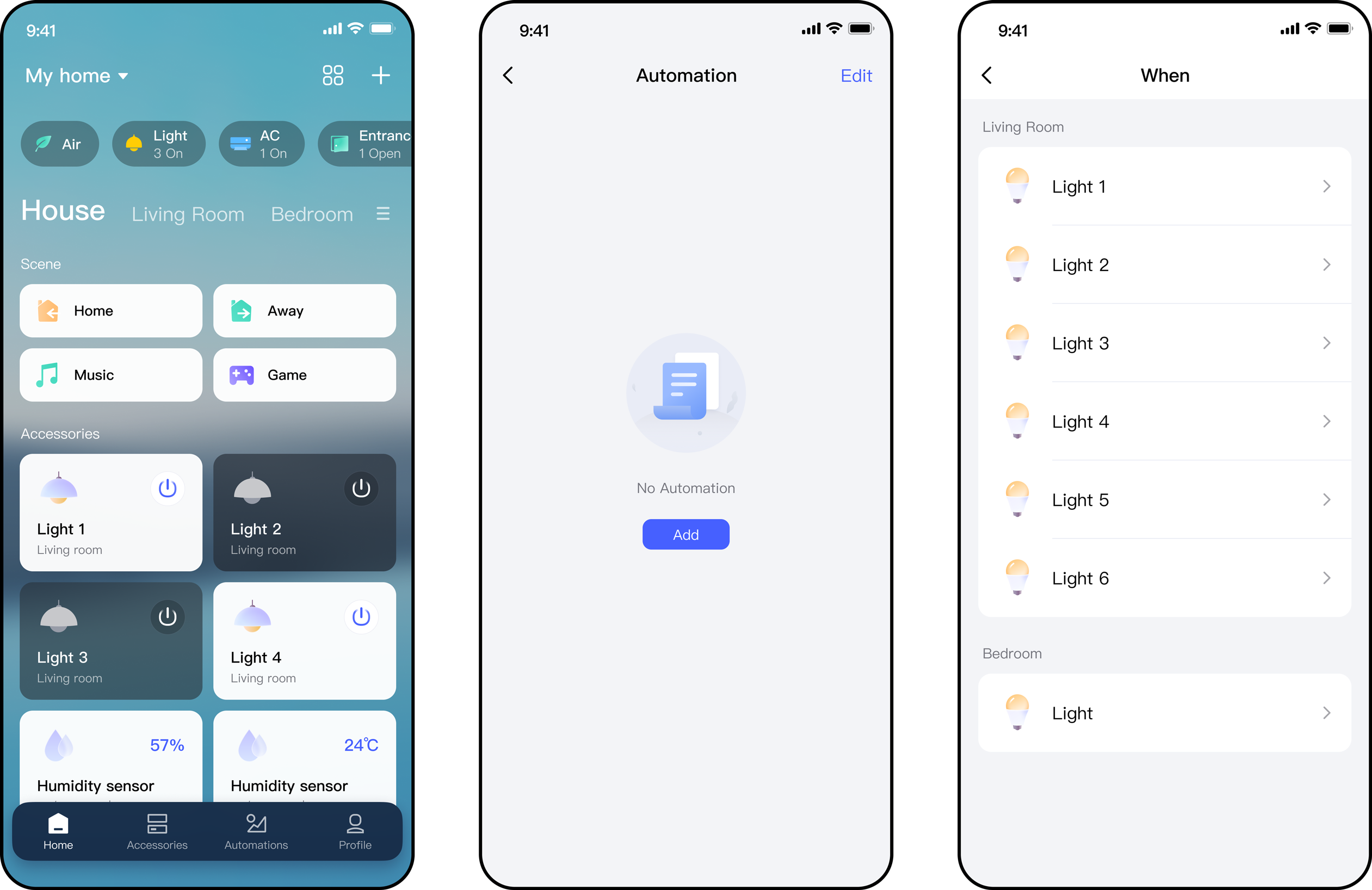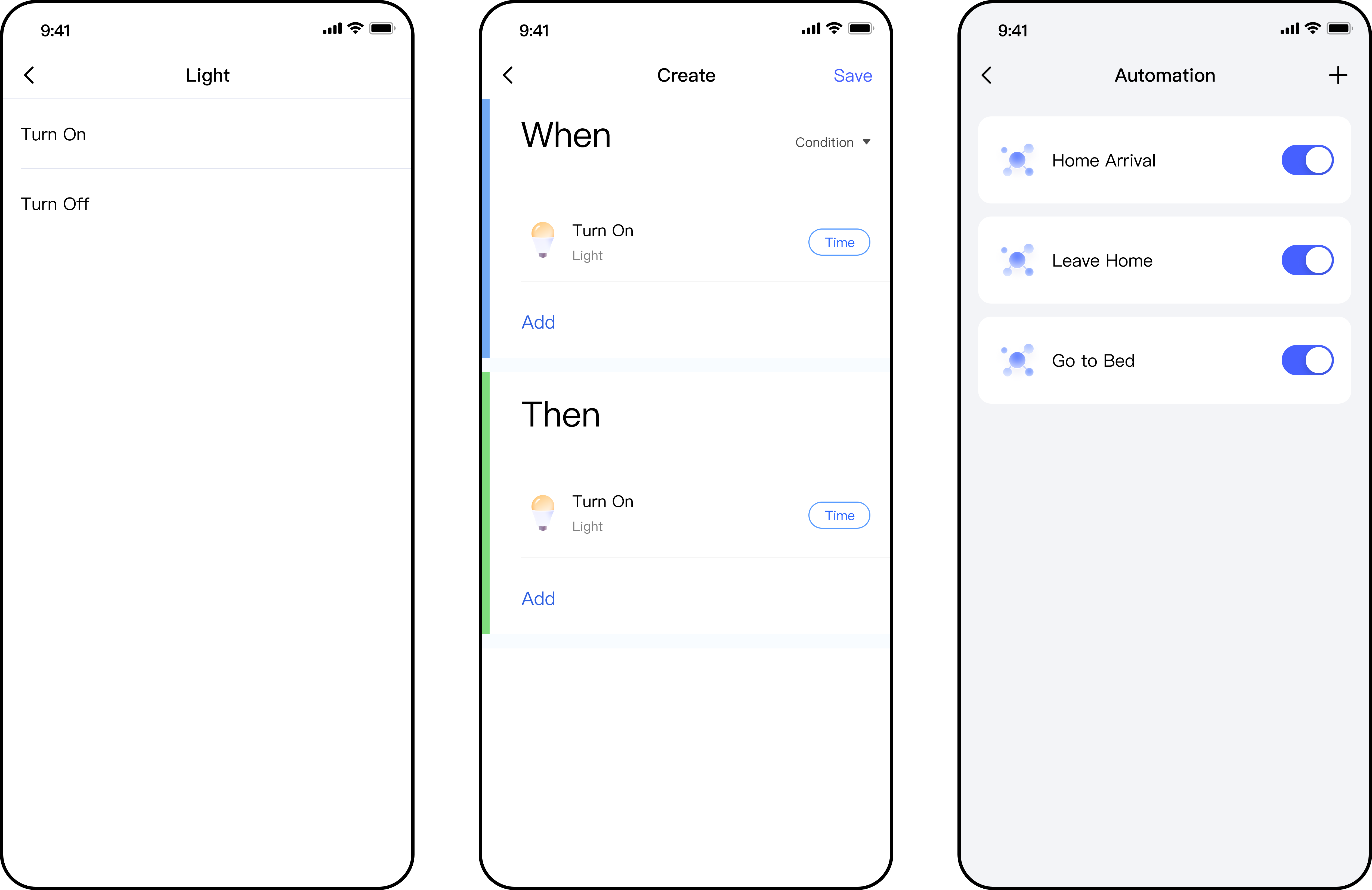Aqara is a smart home brand that provides a variety of IoT devices, including locks, sensors, cameras, smart plugs, switches, and hubs. Aqara's mission is to create holistic, personalized smart home experiences that are accessible to everyone.
Aqara focuses on delivering Matter-compatible smart home products designed for home automation, security, and energy management, enabling users to create custom scenes and automations. They integrated with the Google Home APIs to deliver significant improvements in cross-platform interoperability, user experience, and ecosystem growth.
The Challenge
Prior to integrating with Google Home APIs, Aqara Home app users encountered significant limitations that hindered the creation of a truly unified smart home experience. These challenges were primarily centered on the scope of existing automation capabilities and interoperability
Limited Scope of Aqara's Automation Engine: Aqara's powerful IF-THEN automation engine, known for its ease of use, was previously restricted to controlling only Aqara devices and third-party Matter devices connected specifically via an Aqara Matter Controller. This meant users could not leverage the full power of the Aqara Home automation engine on their wider array of Google Home connected devices from other brands.
Fragmented Device Control: Users often had to manage their smart home devices by switching between multiple separate apps, including the Aqara Home app and other apps for Google Home compatible devices. This created user friction by requiring users to navigate between different interfaces instead of having a single point of control.
Difficulty Creating Cross-Platform Automations: Building sophisticated automations that seamlessly incorporated both Aqara devices and devices connected through Google Home was challenging. This limited the potential for creating holistic smart home scenarios that spanned across different ecosystems and device brands.
Addressing these challenges was crucial for enhancing user experience and making Aqara's ecosystem more appealing by reducing user friction and enabling more comprehensive smart home personalization and automation.
Google Home APIs transformed Aqara from a standalone ecosystem into a bridge for the smart home. Interoperability is the future—users demand seamless control, not walled gardens. Aqara aims to offer users greater flexibility.
Eugene You, CEO of Aqara
What Aqara Did
To address the limitations in interoperability and automation scope, Aqara partnered with Google to integrate with the Google Home APIs.
Specifically, the Google Home APIs allowed Aqara to:
- Extend the Aqara Home Automation Engine: The Google Home Automation API allows automations created within the Aqara Home app to control a wider ecosystem of devices. Users can now use the familiar Aqara IF-THEN automation builder on devices connected via Google Home, overcoming the limitation of only controlling Aqara or Aqara-hub-connected Matter devices.
Enable Cross-Platform Control and Automation: Users can now create and manage automations featuring devices connected to Google Home, directly within the Aqara Home app. This allows for cross-platform control, eliminating the need for users to switch between multiple apps to manage Google Home compatible devices and Aqara devices.
Support a Wide Ecosystem of Devices: The Aqara Home app could now support thousands of different types of third-party and Aqara devices connected to Google Home, significantly enhancing the user's smart home experience. This also included support for a variety of device types, including Matter, Cloud-to-Cloud, and virtual devices, as well as custom automations trigger support.


From a user's perspective, all of these features were unlocked simply by connecting their Google Account to the Aqara Home app to access the new automations experience.
While integrating with the Home APIs, Aqara utilized Google's documentation for core functions like device control and OAuth, and testing tools like the Home APIs Android sample app significantly sped up the debugging process.
Results
The integration with Google Home APIs has begun to significantly transform the Aqara user experience and impact business outcomes.
Increased User Engagement and Adoption: Testing data showed users leveraging Home API powered features had 20% longer session times in the Aqara Home app, indicating deeper engagement as they explored and utilized the new cross-platform automation capabilities. The app also saw a 15% increase in users who linked their Google account to Aqara Home, particularly in key markets like the U.S. and Europe, leading to an increase in usage of the new automations experience.
Enhanced Performance: The Home APIs brought performance improvements, including reduced latency where local execution via Google Home APIs cut response times from 2 seconds down to 0.5 seconds for hub-linked devices.
Build a solid foundation for future development: TFrom a development perspective, Google's Home APIs sample app reduced coding time by 40% for common routines. The Home APIs sample app was a valuable tool, reducing test cycles by 60% and catching 80% of sync bugs pre-launch. These tools significantly improved developer productivity and velocity.
Ready to create immersive experiences like Aqara? Start building with the Google Home APIs today!
